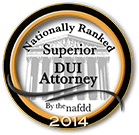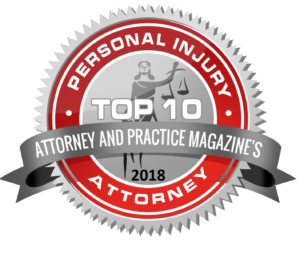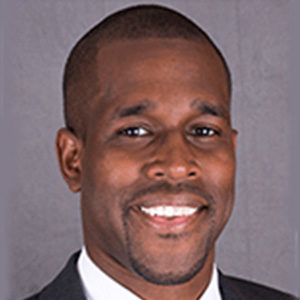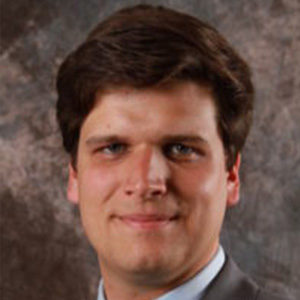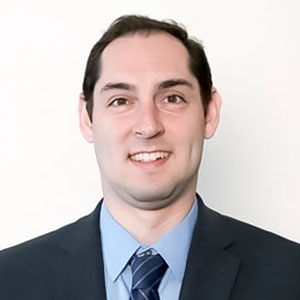Premises liability cases in Virginia revolve around the legal responsibility of property owners or occupants for accidents or injuries that happen on their land. Whether it is a slip-and-fall accident, a dog bite, or an injury caused by unsafe conditions, premises liability cases can impact people’s lives. When someone is injured on another person’s property, questions arise about who should be responsible for the damages. Understanding who can be held liable in these cases helps to clarify the rights of injury victims and their families. This explanation will cover the types of people or entities that may be liable, the conditions that must be present to hold them accountable, and the unique aspects of Virginia law that impact these cases. At, NovaLegalGroup, P.C., we are here to guide you through the legal process and help you navigate the complexities of your case.

Types of Liable Parties in Virginia Premises Liability Cases
In Virginia, premises liability cases typically involve individuals or businesses that are responsible for maintaining safe conditions on their property. The property owner is usually the first person considered in a premises liability case. Property owners include individuals who own homes, landlords, business owners, or even government entities that own land or buildings. Property owners are expected to keep their premises safe for visitors and to fix any known hazards. If a dangerous condition exists, owners must either repair it or warn visitors about the potential risk. This duty varies depending on the type of visitor present on the property.
Beyond the property owner, tenants or renters can also be held liable in premises liability cases. When tenants lease a property, they often take on the responsibility of keeping it safe. If a tenant manages or controls the property where an accident occurs, they may be liable instead of the property owner. In situations where a landlord rents out a home or business space, the responsibility to maintain safety may shift to the tenant. For example, a store owner leasing a building is responsible for keeping the space safe for customers. If a dangerous situation arises and causes harm, the tenant who operates the business may be held accountable.
Companies or businesses that provide services on the property may also face liability. If a company is contracted to clean, repair, or manage a property, it has an obligation to ensure safety during its work. For instance, if a cleaning company fails to put up a warning sign about a wet floor, it could be liable if someone slips and falls. Maintenance companies that overlook repairs may also be liable if their negligence contributes to an accident. In cases where multiple parties are involved, each party’s role in creating or ignoring the hazard will be examined to determine liability.
Conditions for Holding Someone Liable
Liability in premises liability cases is not automatic. To hold someone accountable, certain conditions must be met. First, it must be shown that the responsible party knew or should have known about the dangerous condition. If a property owner is aware of a broken step or a slippery floor, they are responsible for addressing it. However, if the hazard was recent and they had no reasonable way of knowing, they might not be held liable. Virginia law examines whether the property owner took reasonable care in checking for and fixing hazards. The idea of “reasonable care” varies but generally means that property owners are expected to inspect and maintain their premises to a safe standard.
Another requirement is that the injured person must have been lawfully on the property. Visitors to a property are divided into categories, including invitees, licensees, and trespassers. Invitees, like customers in a store, are owed the highest duty of care. Property owners must take extra steps to keep invitees safe. Licensees, who may be social guests, also deserve protection, though to a slightly lesser degree. On the other hand, trespassers, who enter without permission, are not owed the same level of care. Property owners generally do not have a duty to protect trespassers from injury, except in cases where the trespasser is a child or when the owner’s conduct is intentionally harmful.
There must also be a direct link between the hazardous condition and the injury. If someone is injured on the property but the harm was not caused by any dangerous condition, there may not be grounds for a premises liability claim. For example, if a person trips over their own belongings and gets hurt on someone else’s property, they might not have a case because the injury wasn’t due to a property hazard. The victim’s actions can also influence liability. If a visitor acts carelessly or ignores warning signs, the property owner’s liability may be reduced. Virginia follows the rule of contributory negligence, which means if the injured person is even partially at fault, they may not be able to recover damages.
Special Situations in Virginia Premises Liability Cases
Virginia has unique laws for certain premises liability situations. One example is the “attractive nuisance” doctrine, which applies to properties with conditions that are especially tempting to children. While Virginia does not strictly follow this rule, property owners may still be liable if they know that children are likely to trespass on their land because of an attractive feature, like a swimming pool or playground. In these cases, property owners should take steps to secure such hazards to prevent children from entering the area unsafely.
Virginia’s contributory negligence law is another unique aspect of premises liability cases. If an injured person is found even a little bit at fault, they may lose their ability to recover compensation. This strict rule can be challenging for injured people and their families. It places a heavy burden on proving that the property owner was entirely responsible for the accident. Because of this, gathering strong evidence and presenting a clear case is essential in Virginia premises liability cases.
Types of Damages in Premises Liability Cases
In Virginia, damages in premises liability cases can include compensation for both economic and non-economic losses. Economic damages cover out-of-pocket costs, such as medical expenses and lost wages. Injuries from a premises accident can lead to substantial medical bills, especially if the injury is severe or requires ongoing treatment. Lost wages are also a major factor, as people may miss work due to their injuries. Non-economic damages cover losses like pain and suffering. These damages are more subjective and depend on the injury’s impact on the victim’s quality of life. Pain, emotional distress, and loss of enjoyment of life may all be included in non-economic damages.
Virginia does have a cap on certain types of damages, which can impact the amount a person can recover in a premises liability case. For example, if a premises liability case involves medical malpractice, the state limits how much the victim can receive in non-economic damages. Understanding these limits is important for managing expectations in a premises liability case.
Choosing a Personal Injury Attorney Personal Injury Case TimelineRelated Videos
Why Legal Help Matters in Premises Liability Cases
Premises liability cases can be complicated and require a thorough understanding of Virginia’s laws. Property owners, businesses, and other parties often defend against claims by denying knowledge of the hazard or arguing that the injured person was at fault. They may also use Virginia’s contributory negligence rule to argue that the victim bears responsibility for their own injury. Gathering evidence, interviewing witnesses, and proving the property owner’s knowledge of the hazard are vital steps in building a strong case. Because of the complex nature of premises liability cases, having legal guidance can make a significant difference.
The process of filing a premises liability claim involves meeting deadlines and following proper procedures. Virginia has a statute of limitations for premises liability cases, which means there is a limited time to file a lawsuit. If the claim is not filed within the specified time, the injured person may lose the right to pursue compensation. Meeting all necessary legal requirements and deadlines is crucial to avoid missing the opportunity for recovery. Legal representation can help ensure that all steps are followed correctly and on time.
When someone is hurt on another person’s property, they may be facing medical bills, lost wages, and emotional pain. The legal team at NovaLegalGroup, P.C. understands how these injuries affect victims and their families. They are ready to help you explore your options, understand Virginia’s premises liability laws, and guide you in making the best decisions for your case. With their knowledge of premises liability claims in Virginia, they can offer the support needed to pursue justice and fair compensation. If you or someone you know has been injured due to unsafe conditions on someone else’s property, reach out to NovaLegalGroup, P.C. to discuss your case and begin the journey toward holding the responsible parties accountable.



